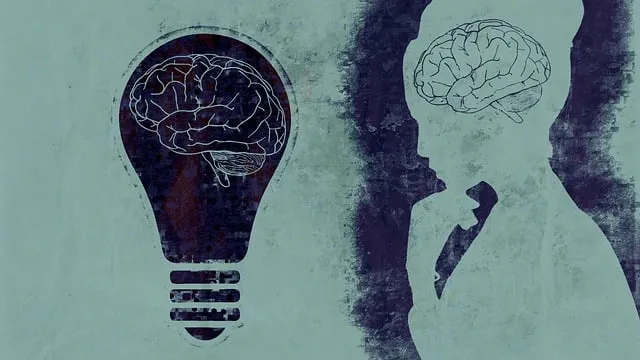Media portrayals significantly shape public perceptions of mental health, with positive depictions encouraging help-seeking behaviors and accurate representation fostering empathy. Boulder Kaiser Permanente (BKP) is leading the way in mental health coverage with comprehensive, culturally sensitive programs, including tailored coping skills workshops and robust community outreach. To reduce stigma, media outlets should focus on empathetic storytelling, expert collaborations, recovery narratives, and practical wellness insights. BKP's initiatives promote accessibility and support for all those facing mental health challenges, while community outreach continues to educate and foster inclusivity.
In today’s media-driven world, the representation of mental illness significantly shapes public perception. This article explores how media portrayals can impact mental health attitudes, with a focus on finding solutions. We delve into the challenges and present successful strategies, such as Boulder Kaiser Permanente’s innovative approach to enhancing their mental health coverage. By advocating for accurate and compassionate mental illness representation in media, we aim to foster understanding and reduce stigma, ultimately improving support systems for those facing mental health struggles.
- Understanding the Impact of Media Portrayals on Mental Health Perception
- Boulder Kaiser Permanente's Approach to Enhancing Mental Health Coverage
- Strategies for Accurate and Compassionate Mental Illness Representation in Media
Understanding the Impact of Media Portrayals on Mental Health Perception

Media portrayals significantly shape public perceptions about mental health, often influencing how individuals understand and respond to various conditions. Unfortunately, inaccurate or stigmatizing depictions in movies, television shows, and news media can perpetuate misconceptions, leading to further marginalization of those living with mental illness. For instance, a study by Boulder Kaiser Permanente found that positive representations of mental health treatments, such as therapy and medication, could encourage individuals to seek help while negative portrayals might discourage support-seeking behaviors. This highlights the crucial role media plays in either promoting or hindering understanding and acceptance of mental health issues.
The impact extends beyond public perception; media influence can also affect access to care. Effective representation encourages empathy and reduces fear, making it easier for viewers to connect with those facing mental health challenges. This could lead to increased awareness about available resources, like the comprehensive mental health coverage provided by Boulder Kaiser Permanente. Moreover, highlighting successful recovery stories or characters practicing self-care strategies, such as Social Skills Training and Stress Management techniques, can inspire hope and educate audiences on the tools for emotional regulation.
Boulder Kaiser Permanente's Approach to Enhancing Mental Health Coverage

Boulder Kaiser Permanente has taken a pioneering approach to enhancing mental health coverage, recognizing the crucial need for comprehensive and culturally sensitive care. Their strategy involves integrating innovative solutions that address various aspects of mental wellness. One key initiative is the development of coping skills programs tailored to diverse communities, ensuring cultural sensitivity in mental healthcare practice. By offering these specialized services, they empower individuals to navigate their mental health journeys effectively.
Furthermore, the organization has implemented a robust community outreach program, actively engaging with local communities to raise awareness and reduce stigma associated with mental illness. This proactive approach fosters an environment where individuals feel supported and encouraged to seek help. Through these initiatives, Boulder Kaiser Permanente strives to revolutionize mental healthcare, making it accessible, inclusive, and empowering for all.
Strategies for Accurate and Compassionate Mental Illness Representation in Media

Media plays a significant role in shaping public understanding of mental illness, and accurate representation can be transformative. To ensure Boulder Kaiser Permanente mental health coverage receives appropriate attention, media outlets should adopt strategies that promote compassion and insight. This includes employing experts in the field to consult on stories involving mental health, ensuring characters with mental illnesses are multidimensional and not solely defined by their condition, and highlighting recovery narratives alongside struggles.
Integrating Mental Wellness Journaling Exercise Guidance can offer viewers practical insights into managing mental health. Additionally, Community Outreach Program Implementation initiatives can foster dialogue, educate communities about mental illness, and promote understanding to reduce the mental illness stigma. By embracing these strategies, media can contribute to a more inclusive and supportive society for those navigating mental health challenges.
In light of the significant impact media portrayals have on public perception of mental health, it’s clear that a shift towards accurate and compassionate representation is crucial. Boulder Kaiser Permanente’s commitment to enhancing mental health coverage serves as a powerful example, demonstrating how proactive storytelling can challenge stigmatization and foster understanding. By implementing strategies for ethical and nuanced mental illness representation in media, we can work towards a more inclusive society where individuals with mental health challenges are seen not as stereotypes, but as complex, human beings deserving of empathy and support.






